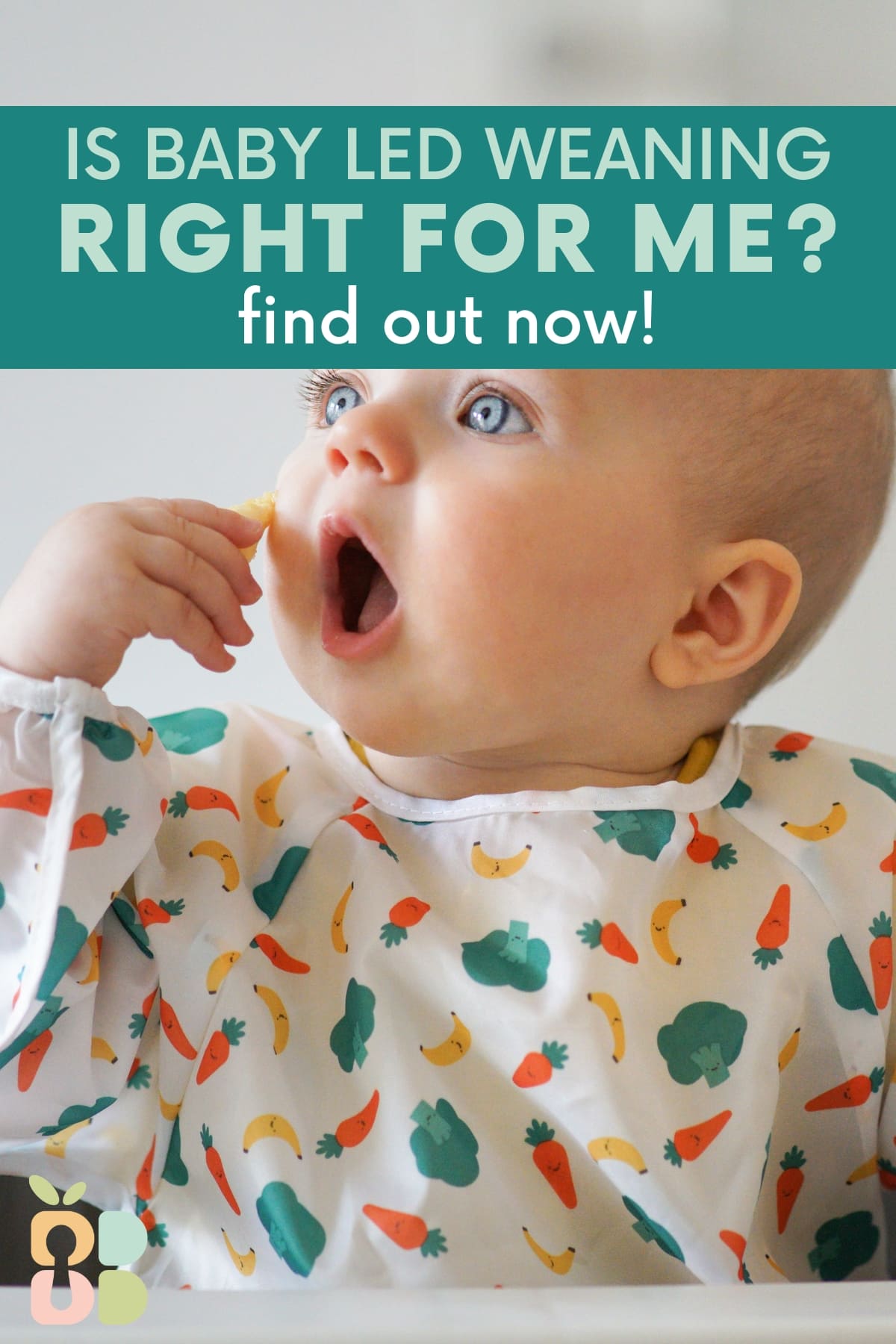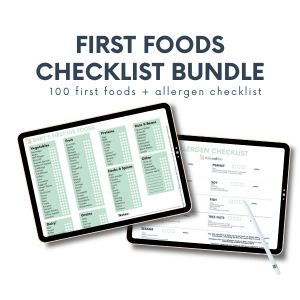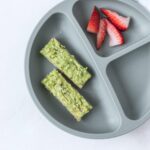Baby led weaning is very beneficial to babies who are fed this way. However, it may not be the best approach for every family. Read more to find out if baby led weaning is right for you and your baby.

Considering baby led weaning with your little one? Maybe you've only heard the term a couple of times, or you might know somebody who has done it with their child. In my own experience as a mom and dietitian, BLW has so many benefits that I would recommend it to everyone if I could! While baby led weaning can work for almost any baby and parent, there may be some instances where it isn't the right fit, and that's okay. If you're wondering if baby led weaning is right for your family, I'm here to help you decide. Let's jump in!
Read more: Benefits of Baby Led Weaning
Who Should Do Baby Led Weaning?
Read the following statements. Do any or all of the following apply to you?
- I want my baby to enjoy a variety of nutritious foods without stressing about her body as she grows.
- I didn't have the best relationship with food as a young person, and I want to help foster a better relationship with food and body for my baby.
- I'm okay with going against the norm if it's in my baby's best interest.
- I'm willing to put in a little more effort and attention in the beginning to help my baby learn to trust her body and develop her eating skills.
- I enjoy cooking and/or make our family's meals at home often.
- I want my child to eat what I eat. I don't want to have to make separate food for my baby.
- I want to avoid mealtime tantrums and picky eating as much as possible.
If you answered 'YES' to one or all of the statements above, then baby led weaning is right for you!
Who Should Not Do Baby Led Weaning?
Babies It May Not Be Right For
As the parent, you may be set on a baby led weaning approach, however, it may not be appropriate for all babies. Babies need to have a certain level of development before self-feeding. BLW may not be right for babies who:
- Are younger than 6 months
- Are very premature and/or are younger than 6 months adjusted age
- Have dysphagia or hypotonia, which can affect the ability to move food around the mouth and/or swallow food
- Have unresolved tongue or lip tie
- Have cleft lip or cleft palate
- Have another developmental delay or health issue that affects ability to sit upright, chew or control food in their mouths
If any of these apply to your baby, it doesn't mean that baby led weaning is off the table. BLW can actually be more beneficial in some cases in helping your little one progress with feeding! However, you should visit with a qualified health practitioner to discuss whether it is appropriate and to learn about adaptive baby led weaning if necessary.

Track your baby's journey through starting solids! Get my 100 First Foods Checklist and Allergen Checklist Bundle today!
Parents It May Not Be Right For
It's also important to evaluate your own lifestyle to determine if baby led weaning is right for you, as a parent. It may end up being more stressful for your family in some cases. BLW may not work well for you if you:
- Do not cook often or you eat most meals out
- Eat a very limited amount of foods - baby needs a variety of nutritious foods to get all the nutrients he needs to thrive
- Cannot devote attention to observing babies cues and feeding responsively
- Can't stand messes
- Are a control freak
- Can't handle disapproving grandparents, in-laws, or pediatricians - it is almost certain that you will have at least one person who is unsupportive of BLW
Again, just because one or more of these is true, that doesn't mean you can't do baby led weaning. You just have to be willing to make some changes or be uncomfortable (parenting is all about sacrifice for our precious little ones, after all!). This may just be the catalyst you need to learn how to cook or start eating healthier!
Ready to get started? Read more: When To Start Baby Led Weaning

















Leave a Reply